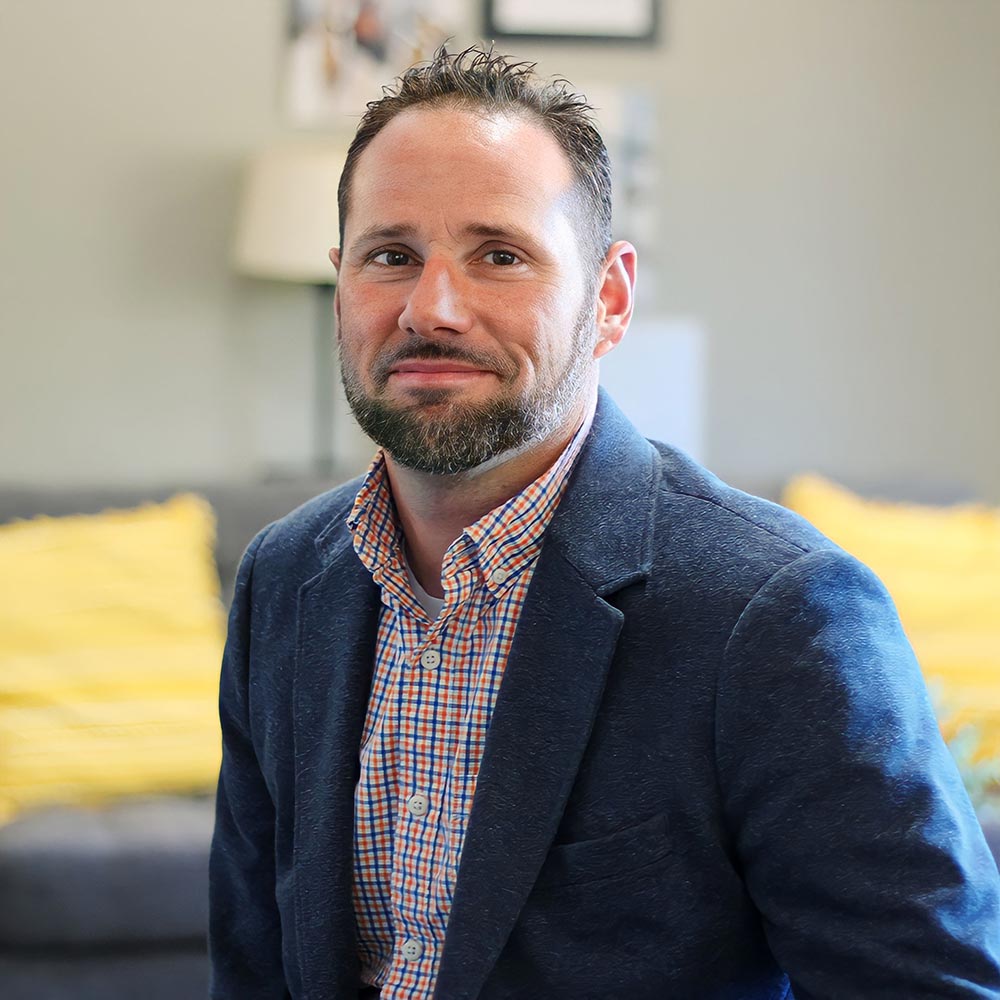Ah, the folly of feeling… I often tell my clients, “Emotions are stupid!” Of course, this is a not to be taken literally and is certainly a bit tongue in cheek. However, there is a point in my dramatics. Think about a handful of bad choices or regrettable actions that you have made in your life. What part did your emotions or feelings play in that process? Whatever your answer is, I am betting the over!
The reality is that they were almost certainly front and center. Most of our poor decisions and behaviors that we wish we could re-do are driven by our feelings. In most cases we are probably reacting from an emotion and not even really thinking! If I think about interactions I’ve needed to apologize for or stupid decisions I made they are all laced with things like anger, jealousy, sadness, or fear. This is why I say that “emotions are stupid.” However, what is really happening inside of us is a very complicated process that we have been mastering for years. Let’s break it down…
How do we Acquire Insecurities?
In most situations, when we have those strong emotional reactions, an insecurity is being hit. We all have these insecurities — negative things we believe about ourselves. Most people have no idea how much these insecurities shape their relationships and limit their lives. In therapy, we call these insecurities negative core beliefs.
Negative core beliefs are primarily developed during childhood. The are result of interactions, relationships, and experiences. You do not need to suffer traumatic experiences to form them, like severe abuse or neglect. Often, there is no ill-intent involved at all. For example, a parent spends more time at work than with their child. The child could come to acquire a belief that they are unimportant. Here are a few more real-life examples of how negative core beliefs can come into being:
A girl is picked on by her older brother, sometimes physically assaulted, and her parents do little to intervene to keep her safe.
The child begins to develop a belief that she does not matter.
A tough-loving mother believes that compassion and understanding will lead to needy children. She is cold and distant with her daughter, at times belittling and demeaning.
The daughter grows up with a belief that she is an unlovable embarrassment.
A boy struggles with ADHD, he often acts impulsively and gets in trouble at school and at home. He receives little praise or encouragement from the adults around him. His parents fight frequently and eventually get divorced.
This child believes that he is a screw-up and ruins everything.
A child is adopted by two caring, loving parents. He finds out at age 7 that his biological mother’s rights were terminated because of her drug abuse. There is no record of his father.
This boy begins to believe that he has no worth or value, as drugs were more valuable than he was.
These stories are four of countless examples I have encountered over the years. There are other examples that involve heart-wrenching experiences and trauma where it is easier to see how a person can come to believe negative things about themselves. Just because your experience was not traumatic does not mean that it didn’t matter or contribute to how you see yourself today. A “typical” childhood experience can lead to insecurities as well.
Negative Core Beliefs are Irrational.
This is a very important piece of insight, and so difficult for so many people to internalize. That negative stuff we believe about ourselves is always a bunch of crap! It is irrational, it is not true, it is not real. None of us are perfect, we all have things we can do better, things we can improve. But, that is not proof that we are unlovable, worthless, etc.
Let’s look closer at the girl with the distant mother who subscribes to tough love. This mother believes that coercive discipline is what children need. The word is cold and hard, and a gentle, compassionate mother does not prepare her children for life. At her warmest she is distant and indifferent, at her coldest she is mean, spiteful, and harsh. Growing up, our little girl does not get the love, patience, understanding, and nurturing warmth and comfort that children need to thrive, to grow confident and secure. Instead, she grows to doubt herself, to question herself at every turn. In her own mind she is clearly unlovable, why else would she be treated this way?
Are you starting to see why this self-belief is irrational? When I am sitting with a client and unpacking this type of stuff, one of my favorite questions is to ask, “What would have been different had you grown up in a warm, affectionate, loving household?” The typical answer is something to the effect of, “I wouldn’t have these struggles, I wouldn’t have all this self-doubt.” Can you see what comes next? “So, let me make sure I get this, the only reason you are unlovable is because your mom was a mean mother? You’d be loveable if your mom was nice? So, if I grew up in your home, I’d be unlovable too then?”
Usually, the negative stuff we believe about ourselves is because our parents were not perfect and made mistakes. One of the great evils of life is that children personalize everything. From a rational perspective, we can see that those parental mistakes say more about the parent than the child. But the child experiencing it cannot see it that way.
Our brains are wired to resist change.
We can all relate to the idea that change is hard and uncomfortable. For some people it is down-right scary and dangerous. Well, there is a reason for that. Our brains are wired to keep things the same. Life is simpler this way and our brains want to keep things simple and straightforward — change threatens this.
Our brains don’t care if a change would be good for us or bad for us. It does not make this determination at a conscious level, it just resists. So, if deep down I believe that I am a “screw up,” my brain wants me to be a screw up. Because, if I was someone who did things correctly — GASP! — that would be change! I see this concept play out with my clients all the time. Our brains avoid the unknown and want to pull us back to what they already believe. The brain does this in a couple ways:
We unconsciously behave in a way that elicits responses from others that become proof of the negative core belief we already hold. In this way we sabotage our own lives.
A husband who believes that he will “never be good enough” treats his wife poorly, who then distances herself from him. This distancing becomes the evidence that he is indeed, “not good enough.”
We attribute meaning to events and interactions around us so that they become proof of the negative core belief we already hold.
“My boss didn’t respond to my email from yesterday, she has figured out that I am idiot, I am going to get fired, I knew it, I knew was never good enough for this job!”
This is what I mean when I tell my patients, “Emotions are stupid.” Unconsciously, we behave in ways that make those feelings true or “make meaning” out of events that are, in reality, unrelated to us. Another way to think about this is that people fill labels. We are what we THINK we are.
Knowing this, it is easy to see why the person who does not value themselves ends up in unhealthy relationships with people who treat them poorly. That poor treatment is the evidence our brains are looking for to confirm that damn negative core belief! (Side note, this is also why more than 90% of diets fail. Until I stop thinking that I am an overweight person, I will always gravitate back to my pre-diet weight, because that is what my brain wants!) All durable, lasting change starts on the inside and works its way out.
Emotions are stupid.
Emotions, perhaps more accurately, feelings are stupid because those negative beliefs lead us astray and prevent us from living how we want. They result in untapped potential, anxiety, depression, and lives lived less fully and happily than we deserve.
We end up filtering the events and interactions that happen around and to us through the lens of these negative beliefs. Our brains let in the things we can use to confirm them and block everything that challenges them. Have you ever met someone who minimizes compliments and praise, but criticism hits them like a ton of bricks? You see where I’m going??? Let’s review all this quickly:
- We acquire negative core beliefs during our childhood because our parents are human and not perfect (that doesn’t make them bad people either).
- These beliefs are irrational.
- We unintentionally act in accordance with these “truths” as we believe them to be. They become our unknown guiding principles, over which most people have very little insight.
Where do we go from here?
“The definition of ‘insanity’ is doing the same thing over and over again and expecting different results.”
Albert Einstein
So, what do we do with all this information? Insight without behavioral change is pointless, otherwise our lives do not improve. Long term, our goal is to heal the wounds that these insecurities have grown from. A good therapist can help guide you through that process. For now, we can work to limit how much control and influence these feelings exert over us by striving to become more intentional in our actions.
The next time you are feeling angry or hurt, or particularly emotionally reactive give these steps a shot:
- Stay quiet initially, almost certainly whatever you say from that emotional place will only make the situation worse. Let’s give the more developed parts of our brain a moment to come back online.
- Look inward, not outward. Something is behind that anger, imagine that you can wipe away that anger, what is below it? Where is this pain or hurt coming from? Why did that comment bother us so much? If we get below the surface what we do find, do you feel worthless, not good enough, incompetent, irrelevant? That is the negative core belief we want to become more aware of. (Even if you cannot figure this out, just going through this process helps to increase your insight and delay your reactivity.)
- Work to delink this feeling or belief from the event or interaction that prompted it. Take a few deep breaths and say to yourself, “Just because my boss hasn’t emailed me back does not mean that I am not good enough for this job.” Our goal is not to destroy, ignore, or repress our feelings, but to get better at sorting out the irrational ones that are steering us into poor choices and dysfunctional behaviors. This process acknowledges our feelings, we just are not going to let them drive our behaviors.
- Decide what to do, however, we are making this choice from a more logical place, not an emotional one. So instead of running around the office asking our co-workers, “Have you seen our boss, did she look mad, did she ask about me…?” We may decide to just patiently await her response for another day. Not coincidentally, I wonder if running around the office frantically, desperately asking co-workers if your boss has asked about you makes you look like you are, or are not, good enough for the job? There we go again, sabotaging our own lives.
This process is not easy, even though it may seem simple on paper. Most people have been guided by their negative core beliefs for years. Living that way has become their comfort zone, even though it is limiting and less fulfilling. Change is hard, and unconsciously, we resist it. However, if you want to achieve more, if you want to enjoy a fuller happiness, if you want to unleash your potential you will need to transcend the feelings that hold you back!




